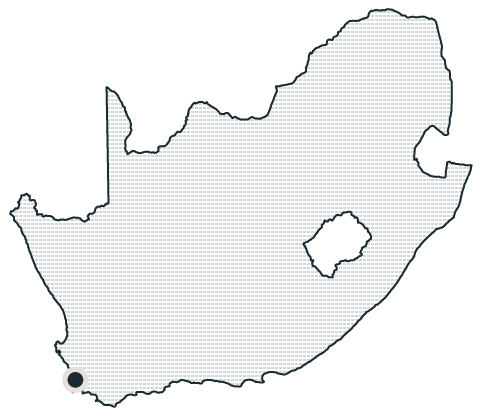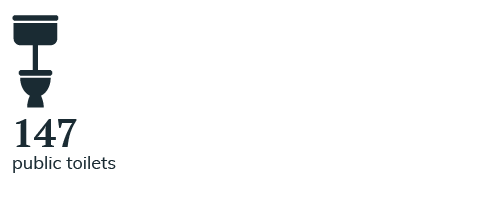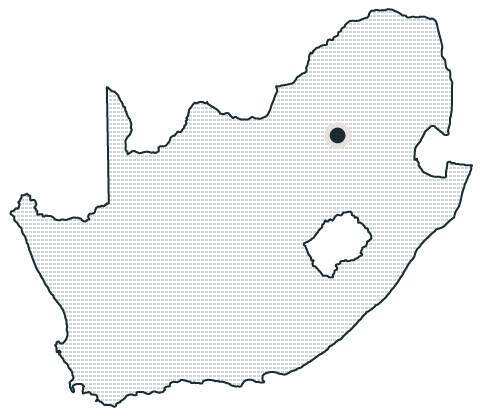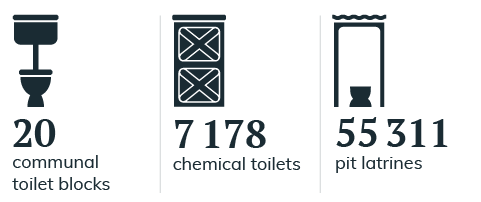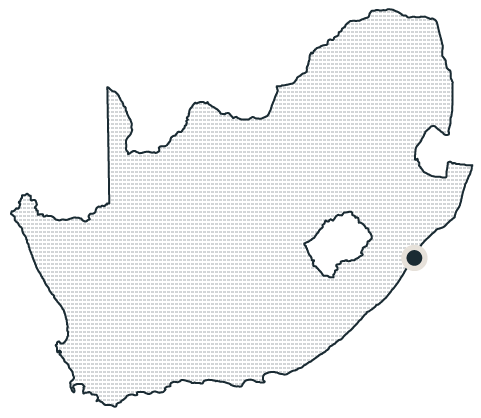Durban, the city that forces the poor to defecate in the streets
Contemptuous municipal attitudes have compromised public sanitation in the heavily trafficked hubs of Durban forcing people into undignified, unhealthy and dangerous situations.
Author:
24 June 2019

The state of public toilets in South Africa’s major cities is a damning indictment of the political establishment’s contempt for millions of impoverished and working-class people who endure the indignity of relieving themselves in public every day.
Dora Khumalo has grey hair and a wide smile. The 63-year-old grandmother has been a street trader since she was 13, and runs a clothing stall situated in the massive passenger nexus at the entry to Warwick Triangle on the edge of Durban’s central business district.
As she has aged, Khumalo’s life has become more difficult, notably because she struggles to squat over a five-litre bucket and simultaneously cover herself with a plastic sheet when she has to urinate at work. Warwick Triangle is a lively market beneath a highway overpass where bus, rail, taxi and car passengers converge daily and jostle for a few functioning public toilets.
Khumalo suffers from backache, but this pales in comparison to the humiliation of having to urinate on the roadside in full view of some of the 500 000 people who traverse Warwick Triangle every day. She is not alone in this indignity. On the pavement pools of urine fester close to food vendors.
Khumalo’s clothing stall is within metres of one of the precious few public toilets in the city, but they aren’t always working. She says that where there are toilets, they are often filthy, fly-infested, broken or blocked. This is despite the efforts of a toilet attendant who works in the area. She says that the attendant is a dedicated worker who tries hard in the face of the municipality’s failing support and the high demand for few toilets.

Toilets that public officials wouldn’t use
Eventually responding to New Frame’s questions, eThekwini municipality officials provided some information about the state of public toilets.
There are “sufficient ablution facilities to meet the demand”, says the city’s spokesperson, conceding a few lines later that “there is a high usage rate with queues throughout the day”.
Suffice it to say, most officials or politicians clearly haven’t had to use an inner-city public convenience in a while.
The dearth of public facilities in Warwick Triangle is replicated across the city, where entrances to many bus stop toilets are simply fenced off.
Where every concrete pillar is a urinal
Patrick Ndlovu is the co-founder of Asiye eTafuleni (AeT), a non-governmental organisation (NGO) that works with street traders. Toilets run by the city, the Passenger Rail Agency of South Africa or the eThekwini Transport Authority are ridiculously inadequate, he says, which explains why “every concrete pillar is a urinal”.
Ndlovu has been working with traders and commuters in Warwick Triangle since 1986, first as a city official and for the past decade with AeT, which he co-founded with architect and fellow council manager Richard Dobson.
AeT conducted detailed studies of Warwick toilets in 2016 and 2017.
The NGO recorded 23 functioning toilets in Warwick and the central business district, plus three portable toilets, two pissoirs or public urinals, and six urination troughs.
Their study found safety to be a recurring complaint, from both toilet attendants and users. Drugs, violence and theft were often cited, as well as the issue of female attendants being assigned to clean male toilets.
One anonymous comment given to AeT summed up the user experience: “The toilets are dirty and broken … You only go in because you are desperate.”

How the city shirks toilet responsibilities
The city has a complicated hierarchy of departments tasked with different aspects of public spaces, meaning that in Durban four departments are involved in public toilets but no single department is responsible.
AeT’s report says this makes for an unclear chain of command and contested solutions around public facilities.
Dobson says that a long history of deferred maintenance and ad hoc repairs have created tenuous systems that could be fixed, but in the meantime the city seemed averse to innovation.
“We designed toilets that are unashamedly robust and not necessarily pretty, but they are safe, functional and easy to clean and repair. They could offer users a more dignified experience,” says Dobson.
Dignity seems the furthest thing from those who work on the pavements in the vicinity. To say nothing of how “pretty” the toilets may be.
Khumalo’s colleague, Aurelia Gumede, is 68 years old and a diabetic. She has to go to the bathroom about five times a day. When the toilets are shut, she and others share Khumalo’s bucket and shrug off the shame. “It is embarrassing, but what else can we do?”
Khumalo says suspended Durban mayor Zandile Gumede would never use a Warwick Triangle toilet: “Definitely not. We asked the city business support unit if we could take care of the toilets, but they said no.”

Dirty business of tenders and toilets
This is an ironic comment, considering that City Press reported earlier this year that charges the now suspended mayor faces include how she and others allegedly orchestrated a tender scam that saw the municipality pay R25 million to hire and clean chemical toilets for six months. Previously, it cost the municipality R3 million to hire the same toilets for three years, according to the newspaper.
Perhaps the best public toilets at Warwick Triangle are run by an energetic young man who identifies himself only as Brian. He busies himself mopping the floor of a toilet the eThekwini Transport Authority has outsourced to a private cleaner.
Ndlovu says the person with the cleaning contract is seldom there, which has created a gap for Brian, who cleans in return for tips.
Zwelinkosi Ngquphaza bootlegs CDs from a table directly opposite Brian’s toilets. He uses the facility four times a day. He says people are happy to leave Brian R2 or R5 coins for his trouble, which is what people pay at a shopping centre around the corner from City Hall, where there are public bathrooms, yet only two of the seven stalls in the men’s toilet work. The rest are barricaded shut with emergency tape and the attendant there says they’ve been broken since 2010.
Ndlovu says Brian’s toilets aren’t supplied with paper, but there’s never a shortage. Instead, there’s a brisk trade in toilet paper. Likewise, disinfectant is also in high demand in Warwick.

How to sweep away the shit and keep your customers
Muthi seller Simon Gumede spends R50 a month on disinfectant cleanser Jeyes Fluid. His stall is beneath the Johannes Nkosi flyover into town, just metres from the road, where he sells jackal and baboon hides and an array of potions.
“Every morning, I sprinkle my area with Jeyes and water. When it rains, the sewage pushes up the manhole covers and I pay a young guy to sweep the shit along with a broom. I’m healing people here. It can’t be dirty. I understand if people have to go. I just ask them to go further away.”
Ndlovu remembers traders being shot in Brook Street for remonstrating with a man who defecated on the pavement.
Not far from the muthi seller is a city cleaner who asked not to be named for fear of victimisation. Her “job” is to pick up piles of faeces around the toilets, deposited overnight or early in the morning when the toilets are locked.
The cleaner has gloves, a face mask and a broom. “Ah, I can’t tell you how demotivating it is coming to work. I think about what I will have to do. It is so degrading. I pick it up and put it in plastic bags. It is especially bad on Saturday mornings because a lot of people go to the shebeens on Friday.”
The cleaner steers clear of certain areas, such as behind the wall at AeT’s offices. A rat scurries around and a mangy dog eyes the underpass littered with piles of human faeces.
Tony Pillay, a bus rank foreman, shakes his head angrily. Some of his passengers travel for 90 minutes to reach town. As soon as they arrive, many need a toilet. But they are either busy, closed or too vile to use. “Look around you, there is shit everywhere. It’s terrible,” he exclaims.
Alfred Gove is a trader who travels to Durban using taxis. “The toilets here are mostly dysfunctional, so you go in the street. It is embarrassing. The smell is so bad.”

When you’ve got to go, you’ve got to go
Gove says broken toilets encourage vandalism and bad behaviour. “If there is no water to wash your hands, or if the toilets don’t work or if the floor is dirty, then people will have no respect and piss anywhere.”
Ndlovu says the city’s response to the problem is completely inadequate.
eThekwini passed a bylaw a few years ago making urinating in public illegal. It carries a fine of R4 000.
Ndlovu laughs. He’s not aware of anyone having been fined to date.
Raymond Perrier, director of the Denis Hurley Centre, which assists homeless people in Durban, says repeated complaints about public toilets have fallen on deaf ears. The city’s disdain for the subject means politicians and officials “criminalise poverty”.
“The few toilets that work are only open between 8am and 4pm, which immediately excludes the 2 000 homeless people in Durban. Until the mayor or any councillor can prove they use a public toilet, it’s difficult to take what they say on the subject seriously,” he says.
“There’s a public toilet near the Denis Hurley Centre that has been broken for a year. And officials complain when people urinate in public. Where else are they supposed to go? Public toilets should be private and dignified.”

